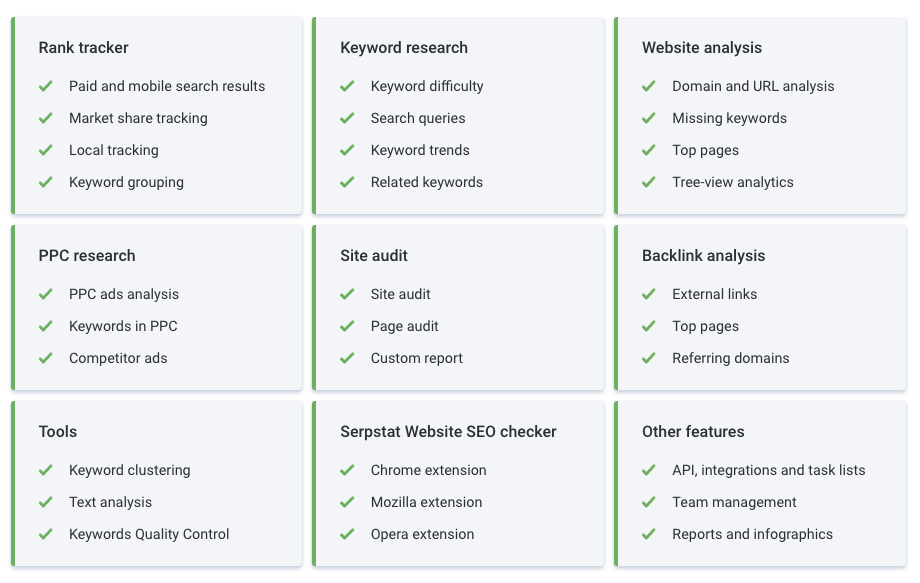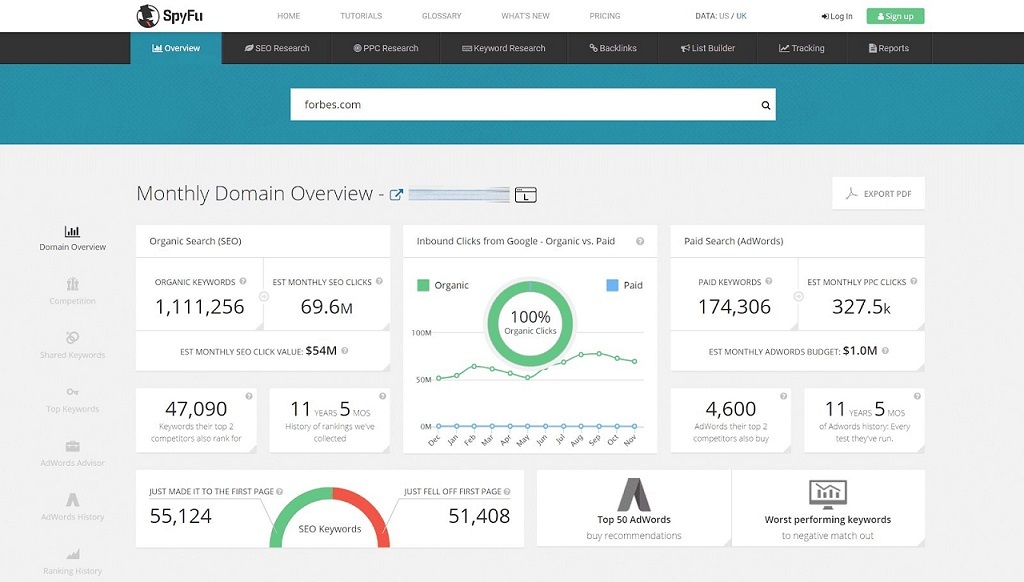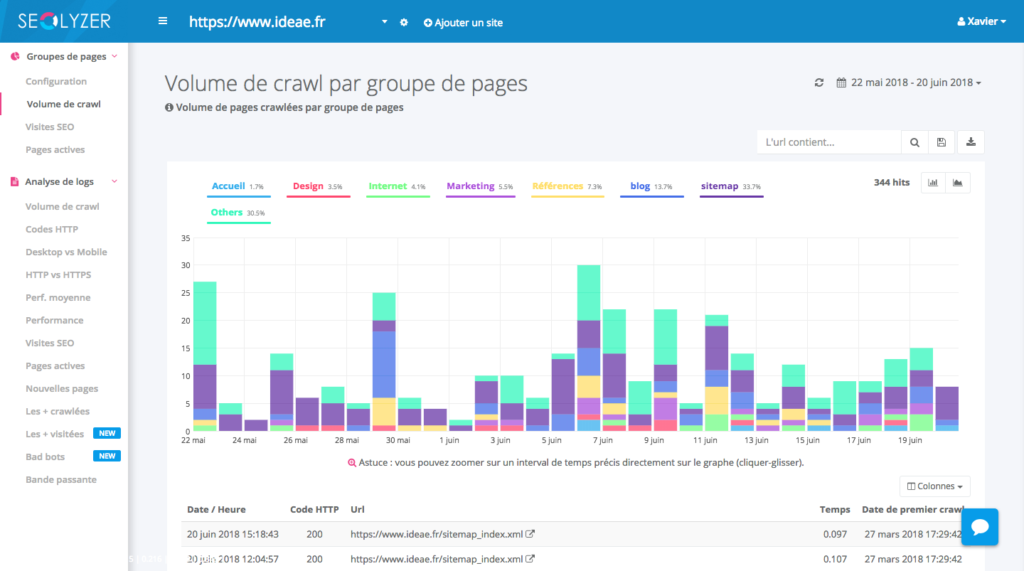Start Exploring Keyword Ideas
Use Serpstat to find the best keywords for your website
A Quick Guide to Building an In-House SEO Team

Now, you’re here because you’re ready to start, and guess what? We’re more than glad to serve as your guide.
In this article, we’ll be exploring the following:
- Benefits of having your own SEO team
- The hierarchy of an SEO team
- Forming a successful in-house SEO team
Sounds exciting? Well, we won’t keep you waiting. Let’s start!
2. The Hierarchy of an In-House SEO Team
3. Forming a Successful In-House SEO Team
- Step 1: Determine the Budget
- Step 2: Consider the Size of Your Company
- Step 3: Bring in a Mix of Highly Skilled Individuals
- Step 4: Set Your Goals
- Step 5: Have All the Right Tools
Benefits of Having an In-House SEO Team
- You have representatives fully immersed in your brandPossessing an intimate knowledge of your brand is always necessary to complete SEO work.
Since running a campaign involves creating compelling content and social media posts, as well as maintaining relationships with external sites, using people who know your brand inside out increases your chances of keeping everything consistent. - You’re still in charge of everythingWhile most SEO agencies strive to get guidance and direction from their clients as much as they offer transparency, most also have proven strategies that aren’t easily movable.
When you have your own SEO specialists, on the other hand, you’ll have some level of transparency and gain near-full control over what practices and operations to implement. As long as you trust the people in your team, you’ll be on the right track. - You’ll get faster and better resultsWith your in-house SEO team sitting with your other internal teams to discuss your marketing goals, implementing new plans and producing results will be much quicker to achieve than hiring an agency.
Plus, in-house teams know their company’s clients, challenges, pain points, and strategies better than anyone else. Knowing what to focus on makes it easier for them to drive satisfactory results. - You have the option to outsource certain parts of the workAnother inherent advantage of having an in-house SEO team is the fact that you get to use other contractors.
Whereas agencies generally take on all SEO responsibilities at once, this is never the case if you have your own team. With in-house members, you can delegate specific tasks to other experts to bring on portions for your marketing strategy.
For example, if your goal is to increase your online visibility and quality traffic through the use of backlinks, you can group a team of writers and link builders together to suit your strategy best. - Your teams will benefit from cross-trainingThere might be instances where your in-house SEO team members would find themselves handling some peripheral activities, which means a dual role for them. Or, they might be able to impart their skills and knowledge on other members, and vice-versa.
- You can hire people you trustLet’s face it, not all SEO agencies can be trusted.
Some might employ dishonest or ineffective business practices. Some may be implementing black hat SEO (which will lead Google to penalize you if you get caught) to get instant results. Others provide low-quality links that can hurt your SEO.
Hiring an in-house team won’t get you in any of these unfortunate situations. You’ll have full control over the people who work for you, as it’s up to you to carefully select those with the right skills and qualifications. - You’ll save money in the long runSure, an SEO agency might provide quick or even on-the-spot results, but guess what? It will cost you thousands of dollars in just a month.
Moving your SEO efforts in-house will no doubt get you more bang for your buck. Everyone on your team will dedicate their time, effort, and resources to the growth of your business. Not only that, but doing so can also help maximize the value of your SEO investments, as they can collaborate with teams outside SEO.
The Hierarchy of an In-House SEO Team
These factors can also play a role in determining the size of your team. For example, huge corporations will ideally work well with tens of people, whereas small businesses can settle on a three-person in-house team.
Then again, at the end of the day, size isn’t really much of a big deal. What matters is that everyone in your team gets to work harmoniously to achieve your desired goals. Combining their strengths and skills can make all the difference.
Once you’ve considered your particularities, that’s the time you start structuring your SEO team. For every in-house SEO team, it should comprise these specialists:
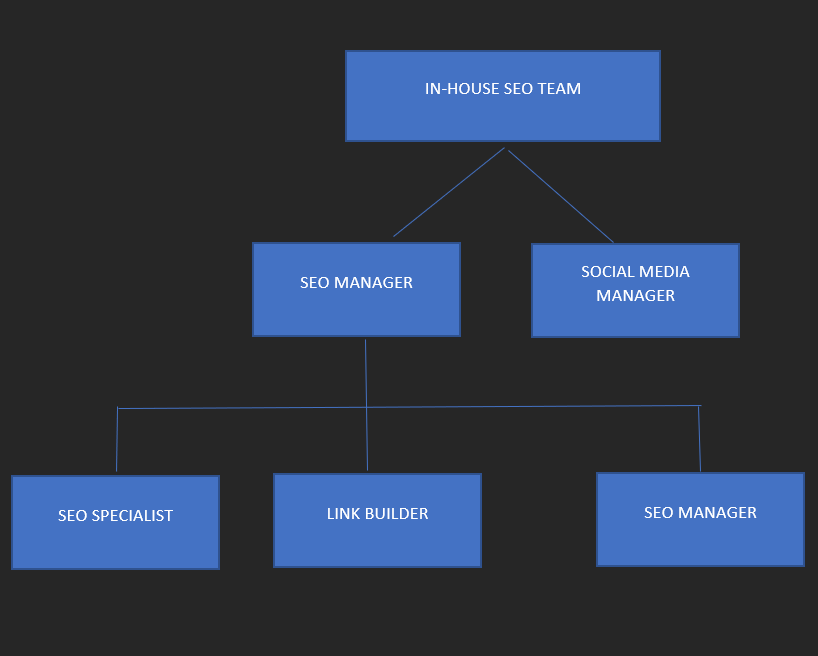
SEO Manager
The SEO manager is considered a leadership role in many organizations. As with managers from other industries, SEO managers are there to lead their team - whether it’s by delegating tasks, providing training and guidance, or keeping track of their team’s performance and progress.
The overall tasks of an SEO manager include:
- Managing a team of SEO specialists
- Developing and executing effective SEO strategies
- Optimizing web content, landing pages, and paid search copies
- Conducting keyword research to guide content teams
- Gathering data and report on rankings, traffic, and other SEO aspects
- Reviewing technical SEO issues and recommending solutions
- Directing off-page optimization projects
- Working with PPC and social media teams to optimize campaigns
- Negotiating backlinks
- Building and nurturing an online community
SEO Specialist
Although their job responsibilities vary based on the type of organization they’re working for (ex. digital marketing agency, digital marketing department of a company, or freelancing), most job postings for an SEO specialist are looking for candidates who are highly skilled at the following:
- Programming websites in HTML, CSS, and JavaScript
- Running pay-per-click (PPC) campaigns
- Making technical recommendations to developers
- Performing ongoing keyword research, discovery, and optimization for new SEO keywords
- Employing positive user experience (UX) and conversion rate optimization methods
- Driving targeted traffic by community building
- Writing original content for the target audience
- Developing and integrating content marketing strategies
- Monitoring the algorithms set by search engines
- Managing the expenses of SEO campaigns
Link Builder
Other than that, link builders are tasked to:
- Research potential websites for outreach
- Monitor and promote blog posts and other content for backlink purposes
- Perform a content audit to identify linkable potentials
- Submit business listings with online tools
- Analyze and monitor competitions’ backlink and advertising link strategies
- Develop custom tactics and strategies for maximum efficiency
- Organize and maintain multi-faceted campaigns
- Scrutinize clients’ websites and identifying linkable assets
Content Writer
The responsibilities of a content writer include:
- Producing well-researched content that engages readers
- Optimizing content for keywords that are most relevant and valuable
- Researching industry-related topics
- Using SEO strategies in writing to maximize a website’s online visibility
- Promoting content on social media
- Preparing well-structured drafts with Content Management Systems
- Coordinating with marketing and design teams to illustrate articles
- Conducting simple keyword research and following SEO guidelines to increase website traffic
- Updating website content when necessary
Social Media Manager
Being a social media manager entails the following duties:
- Creating and implementing social media strategies monthly
- Overseeing day-to-day management of campaigns
- Supervising all aspects of social media interaction between the company and clients
- Forming key relationships with influencers across social media platforms
- Producing engaging multimedia content across multiple platforms
- Using analytical tools to ensure progress on all platforms
- Setting actionable plans to grow and maintain social media followers
Forming a Successful In-House SEO Team
Let’s be honest, forming an in-house SEO team can be a strenuous process.
Because you won’t have the mobility of large teams in place, you may need to hire more individual contributors for more aggressive strategies. It’s also important to have a team that’s composed of people with different SEO skills, so they’ll be able to tackle both technical and creative issues with ease.
So, how can you build an in-house SEO team that can deliver optimal results? Let these steps guide you:
Step 1: Determine the Budget
Discussing budget matters is extremely crucial. Building the right team won’t be possible without having the right budget. And, the right budget will enable the team to function properly.
Think of it as building a house. Obviously, you wouldn’t want to construct one without taking time to assess all of its cost first, would you?
That’s why you should take this step seriously.
Budget planning and development will require you to do some extensive research. You’ll have to benchmark the salaries of the top SEO professionals in your area.
The expenses of an SEO team will vary depending on what positions are filled and who fills them.
An SEO manager, for instance, earns around $60,000 to $100,000 per year. Content writers fall into the $35,000 to $50,000 range, whereas SEO specialists can expect a salary range of $40,000 to $85,000 annually.
Let’s just say that a good SEO professional usually commands anywhere between $40,000 and $80,000, depending on their experience. If you’re looking to hire a seasoned professional, your budget should be around $100,000.
Additionally, the budget should account for common SEO tools and training so that your team members will always stay on top of their game.
Keep in mind that there’s no right or wrong when it comes to assessing budget. What matters is that it remains a top consideration of your SEO strategy. Just make sure not to spend your money unnecessarily and still expect the results to stick.
Step 2: Consider the Size of Your Company
Let’s say you’re a huge company where individual managers are leading different divisions. Since each of them is in charge of their respective division’s portion of the website, the site itself becomes a cohesive whole.
Though it’s not impossible to implement a large-scale SEO gameplan, challenges may surface when you fail to scale your campaigns correctly. If this happens, you won’t be seeing the results you’re hoping to see from your campaign, leaving you utterly disappointed.
However, if you run a smaller business, you won’t have to worry about implementing an SEO plan without the involvement of management and politics at play in an organization hierarchy. Having smaller teams means bigger budgets, which makes it easier to keep up with SEO updates and changes as needed more effectively.
Step 3: Bring in a Mix of Highly Skilled Individuals
When evaluating your candidates, make sure that you closely examine their experiences, credentials, and perhaps even check in with their references. Use the interview as an opportunity to gauge your potential employees.
These general questions will help you assess if they’re really fit for the job:
- Can you give me a list of your former clients, as well as the services you provided and the results?
- Have you worked with a company in our industry before?
- What will you do to improve our search engine rankings?
- Are you good at improving local search results?
- Can you guarantee my website will rank number one on Google and other search engines?
- How do you stay up-to-date with the constant algorithm changes?
- How long do your relationships with clients normally last?
- In your own opinion, what qualities are required to be efficient in an SEO role?
- What is your proudest achievement in terms of SEO?
- How often do you communicate with clients and/or management about your progress?
- How do you usually deal with frustrated clients?
- What makes a website SEO-friendly?
- What are the most effective SEO methods?
- What’s the difference between on-page SEO and off-page SEO?
- What is the most important thing to look for when doing keyword research?
- What is link building and why does it matter?
- What is the significance of meta descriptions?
- What are rich snippets?
- What is an SEO audit?
Besides being an expert (and maybe even a veteran) in the world of SEO, you should pick someone with natural leadership skills. They should be able to direct your SEO program and help you make decisions, such as what SEO strategy would work best and when to bring in more people to your team.
Step 4: Set Your Goals
For your strategy to be effective, you’ll need to prioritize action-oriented SMART goals, which means your goals should be specific, measurable, achievable, realistic, and time-bound. Time and again, SMART goals have helped companies of all sizes reach the top.
To come up with a successful SMART goal, you should ask yourself these questions:
- What do I want to accomplish?
- Who is involved in this goal?
- When do I want to reach this goal?
- Why do I want to reach this goal?
- What are the indicators of my progress?
- How do I know if I have achieved my goal?
- Do I have all the resources and skills to achieve my goal? If not, what am I missing and what can I do about it?
- Have others actually accomplished this goal before?
- Is the goal realistic and within reach?
- Given the time and resources, can I reach the goal?
- Will I be able to commit to achieve this goal no matter what happens?
- Do I have a deadline for this goal?
- By when do I want to achieve this goal?
- When will I have reached this goal to a high degree of satisfaction?
How much organic traffic do you have to generate to produce a good ROI? What pages do you want to rank on the first page of Google for your target keywords? What keywords should you be using throughout your content?
Don’t hesitate to be open to new ideas as well. Brainstorming sessions with the team can do wonders. Who knows, one of them might even come up with something spectacular that can give your brand a major push.
Step 5: Have All the Right Tools

What’s more, you can use this tool to check and fix broken links on your website, get an overview of your best-performing pages, and many other incredible features.
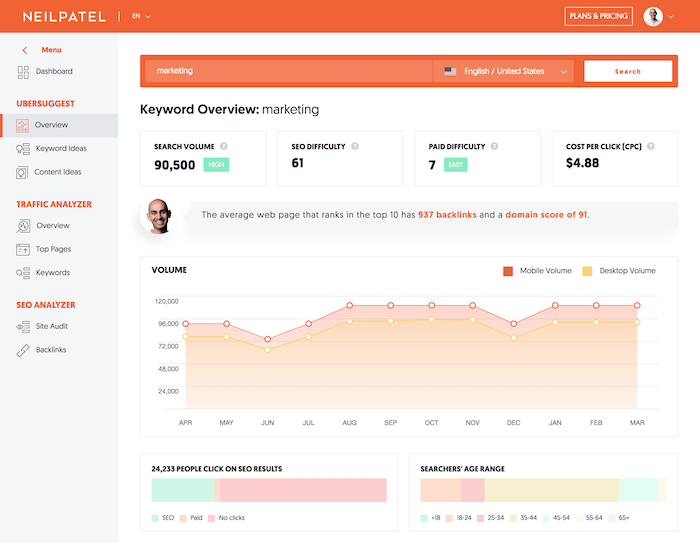

It presents a list of questions online users commonly ask about a particular keyword, providing you invaluable guidance as to what exactly your target audience is searching for.
You’re All Set!
Oh, and one more thing before we let you go: Make it a habit to push and motivate every single member of your team. Boost their morale every now and then to keep them going and strive to be their best.
We wish you the best of luck in forming your in-house SEO team!
Speed up your search marketing growth with Serpstat!
Keyword and backlink opportunities, competitors' online strategy, daily rankings and SEO-related issues.
A pack of tools for reducing your time on SEO tasks.
Discover More SEO Tools
Backlink Cheсker
Backlinks checking for any site. Increase the power of your backlink profile
API for SEO
Search big data and get results using SEO API
Competitor Website Analytics
Complete analysis of competitors' websites for SEO and PPC
Keyword Rank Checker
Google Keyword Rankings Checker - gain valuable insights into your website's search engine rankings
Recommended posts
Cases, life hacks, researches, and useful articles
Don’t you have time to follow the news? No worries! Our editor will choose articles that will definitely help you with your work. Join our cozy community :)
By clicking the button, you agree to our privacy policy.

